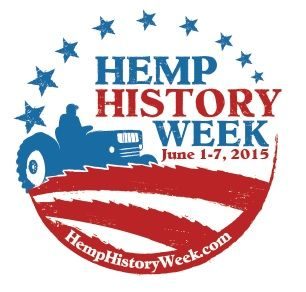With the total retail value of all hemp products sold in the U.S. exceeding $620 million in 2014, the Hemp Industry Association (HIA) and Vote Hemp will look to use the sixth annual Hemp History Week as an opportunity to grow and promote the hemp industry.
Throughout the country on June 1-7, Hemp History Week will be the host to more than 1,100 events that will involve documentary film screenings, cooking demonstrations, retail promotion, educational outreach, spring hemp plantings and hemp home building courses, according to the press release.
One of the biggest events of the week is the S.E. Region Hemp Symposium that is held in Columbia, SC on June 4. The event will inform attendees about hemp legislation, farming techniques, business practices and community involvement. Some of the speakers at the event will be representatives from Tennessee, a hemp farmer from Canada and entrepreneurs from different sections of the hemp market, according to Catherine Hearn, the event coordinator for the Symposium.
“I moved to South Carolina a couple of years ago and found there were a lot of questions being asked about legislation, farming, required infrastructure and market opportunities,” Hearn says. “The goal of the Symposium is to provide answers to as many of those questions as possible.”
Other main events, both educational and entertaining, include: the Chenango Hemp Forum in Morrisville, NY; a Hemp Fashion Show and screening of hemp documentary Bringing It Home in Sacramento, CA; the Charlotte Hempfest in Charlotte, NC; and the Hands-on Hemp Crete & Building Materials Class in Seattle, WA.
Many celebrities and high-profile wellness experts have gone on to endorse Hemp History Week, including Dr. Andrew Weil, Ashley Koff R.D., Alicia Silverstone, Ziggy Marley, Jason Mraz and author Doug Fine.
This is the first Hemp History Week since it was announced in January that the U.S. government has introduced the Hemp Farming Act into both the Senate and House. If passed, according to the press release, “this bill would remove federal restrictions on the cultivation of industrial hemp.”
“It is difficult to look around the globe at all the countries that grow hemp, and have for decades, even centuries, without issue and not be frustrated by the irrational laws in the United States,” says Hearn. “This is business the farmers in the US do not have an opportunity to compete for.”
Published by WholeFoods Magazine Online, 5/28/2015










